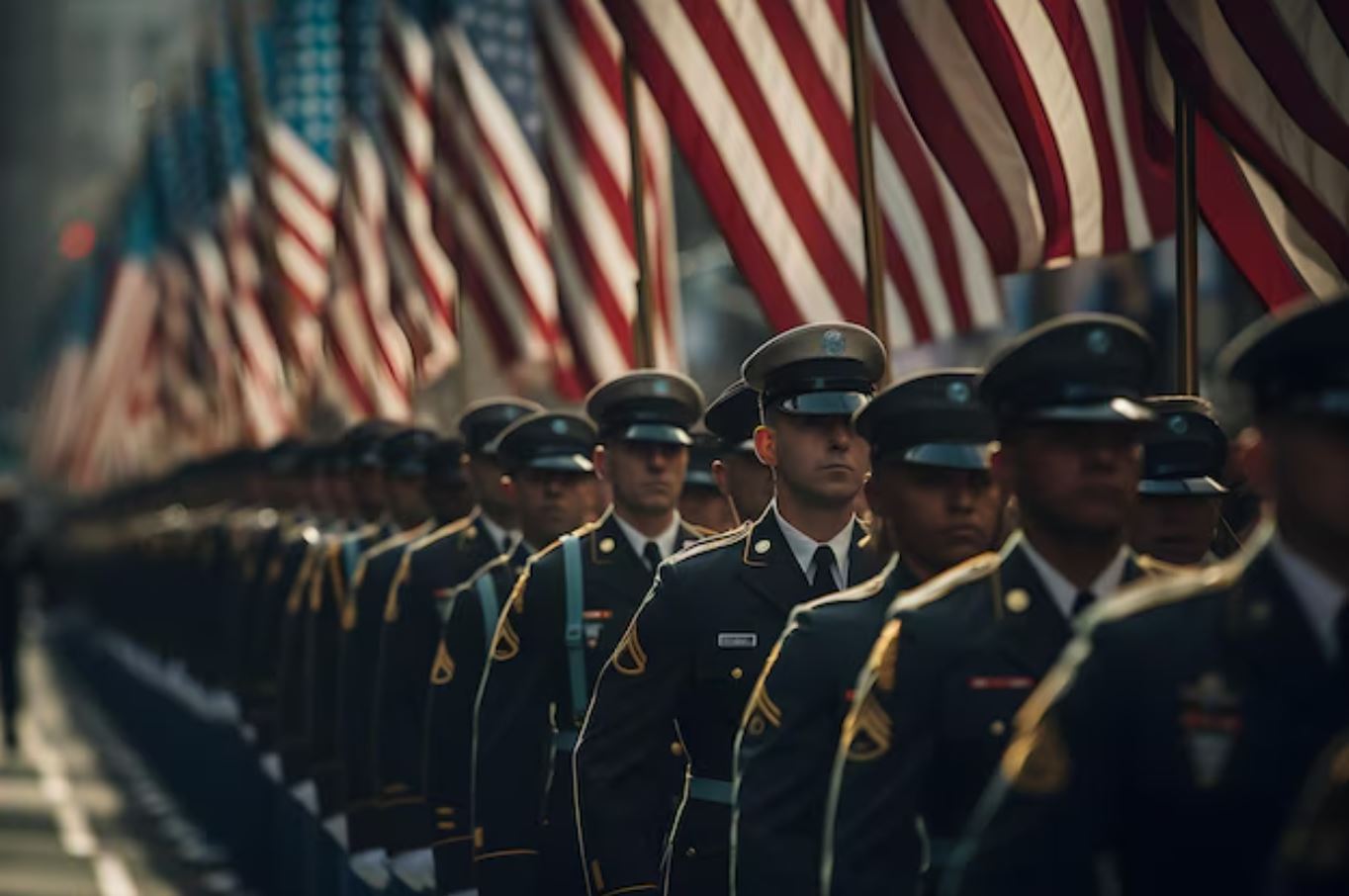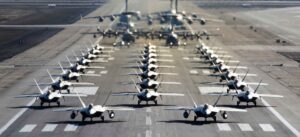The United States military, widely regarded as the most powerful and advanced fighting force in the world, holds a unique and critical position in shaping global stability and security.
From safeguarding American interests to upholding peace on the international stage, its influence goes beyond warfighting capabilities—it stands as a beacon of assurance for nations across the globe. This article explores the U.S. military’s impact on world peace, why it’s considered the greatest, and how American veterans contribute to maintaining that legacy.
Unrivaled Military Power and Global Reach
The U.S. military stands as the world’s premier defense force, with a combination of unmatched capabilities, size, and resources.
The United States spends more on its military than the next ten countries combined, allowing for advanced technological development and state-of-the-art equipment. This substantial investment translates into an army capable of global operations, with nearly 800 military bases across over 70 countries, ensuring a swift response to any international crisis.
This unparalleled reach allows the U.S. to project power globally, reinforcing alliances, deterring adversaries, and providing rapid disaster relief when needed.
America’s military is also a leader in military technology and innovation. The development of stealth technology, advanced drone warfare, artificial intelligence for defense, and cyber capabilities give the U.S. a competitive edge. From its land forces to its naval fleets and air dominance, the U.S. military is a force that is built not only for traditional warfare but also to adapt to modern challenges such as cyberwarfare and counterterrorism.
Promoting Global Peace and Stability
The role of the U.S. military is not confined to combat—it is deeply intertwined with maintaining global peace. Since the end of World War II, the United States has been a central figure in the creation of international security frameworks that have helped prevent large-scale wars.
The establishment of NATO (North Atlantic Treaty Organization), in which the U.S. plays a leading role, is a key example of America’s commitment to collective defense. Through NATO, the U.S. military has been a crucial deterrent against threats, especially during the Cold War and in contemporary times as tensions resurface in Eastern Europe.
In Asia, the presence of U.S. military forces helps maintain peace in volatile areas such as the Korean Peninsula and the South China Sea. By stationing troops in South Korea and Japan and maintaining a naval presence in the Indo-Pacific region, the U.S. ensures the stability of one of the world’s most economically vital areas. The constant presence of the U.S. military in these regions provides reassurance to allies and deters potential aggressors from challenging the existing order.
The U.S. military’s role in humanitarian missions is equally significant. From responding to natural disasters like tsunamis, hurricanes, and earthquakes to offering logistical and medical support during global health crises, the military has shown its capacity to serve as a force for good. Its humanitarian assistance operations have helped rebuild shattered communities, as seen in Haiti after the 2010 earthquake and in various regions of Africa and Southeast Asia hit by devastating storms. The ability to provide rapid relief in times of need enhances global trust in the U.S. military’s role as a stabilizing presence.
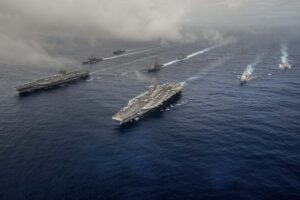
Assuring Stability Through Global Partnerships
America’s global network of military alliances and partnerships is a cornerstone of international stability. The United States has defense treaties with numerous countries, including Japan, South Korea, Australia, and NATO allies, ensuring that any threat to one is a threat to all. This network of alliances creates a global security umbrella that has successfully prevented conflicts from escalating. Countries in volatile regions, from the Middle East to the Pacific, rely on the presence of the U.S. military as a deterrent to prevent adversarial actions that could destabilize entire regions.
One of the most profound impacts of the U.S. military is in ensuring freedom of navigation on the world’s oceans, where roughly 90% of global trade passes. The U.S. Navy, particularly through its global fleet of aircraft carriers and destroyers, patrols key shipping lanes such as the Strait of Hormuz, the South China Sea, and the Gulf of Aden. This global maritime presence guarantees that trade routes remain open and secure, preventing piracy, territorial disputes, or other threats from interrupting the flow of goods vital to the global economy.
Furthermore, through military aid and training, the U.S. military builds up the capabilities of allied and partner nations to defend themselves. This ensures that these nations are better equipped to handle internal and external threats, reducing the need for U.S. intervention and fostering local self-reliance in the maintenance of peace and security.
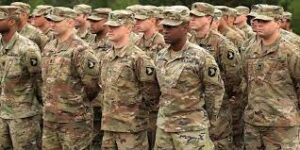
America’s Veterans: Guardians of Freedom
At the heart of the U.S. military’s legacy are the men and women who have served—the veterans who, through their sacrifice and commitment, have safeguarded the nation’s values and global peace. American veterans embody the spirit of service and dedication, often making profound personal sacrifices to defend not only their own country but also to contribute to global security.
Many veterans return from service with a deep sense of pride, knowing that their efforts have helped maintain the peace and stability of the world. However, the transition to civilian life can be challenging, with some veterans facing physical injuries, post-traumatic stress disorder (PTSD), and the need for economic reintegration. Despite these challenges, veterans continue to make significant contributions to society—whether through public service, entrepreneurship, or community leadership. Programs like the G.I. Bill, which provides educational benefits, and organizations like the Department of Veterans Affairs (VA), offer critical support to help veterans transition to civilian life, emphasizing the country’s commitment to those who have served.
Veterans are also key advocates for peace, often participating in diplomacy and humanitarian missions long after their military careers have ended. Their unique perspectives, forged in the crucible of combat and service, often make them exceptional leaders in promoting policies that prioritize diplomacy and conflict resolution over war.
The Moral Authority of the U.S. Military
Beyond sheer military power, what sets the U.S. military apart is its adherence to a strong ethical and moral framework. Rooted in the principles of democracy, human rights, and the rule of law, the U.S. military’s actions are governed by international norms and treaties that aim to protect civilian populations and minimize the horrors of war. The U.S. is often at the forefront of promoting the Geneva Conventions and other laws of armed conflict, ensuring that even in the most dire circumstances, human dignity is respected.
In peacekeeping missions, such as those led by the United Nations or NATO, U.S. troops often work alongside forces from other countries to stabilize regions, protect civilians, and prevent genocide or war crimes. This commitment to ethical conduct extends to humanitarian efforts, where the military delivers aid and relief in war-torn or disaster-stricken areas, further solidifying its role as a force for good.
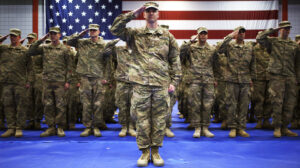
Conclusion: A Force for Peace, Security, and Stability
The United States military remains the greatest military force in the world, not just because of its unmatched power, but because of the global stability, peace, and security it promotes. From deterring conflict through its global presence and alliances to actively engaging in humanitarian and peacekeeping missions, the U.S. military plays an indispensable role in the modern world. It acts as both a shield and a stabilizing force, ensuring that the global order is maintained.
Moreover, the sacrifices of American veterans, who continue to serve long after they leave the battlefield, remind us of the human cost of maintaining peace. Their dedication, resilience, and contributions to society reflect the values that the U.S. military upholds: freedom, security, and justice for all. In a world that often teeters on the brink of conflict, the U.S. military remains a powerful force for peace and stability, safeguarding the ideals of democracy and the promise of a better, safer world for future generations.
